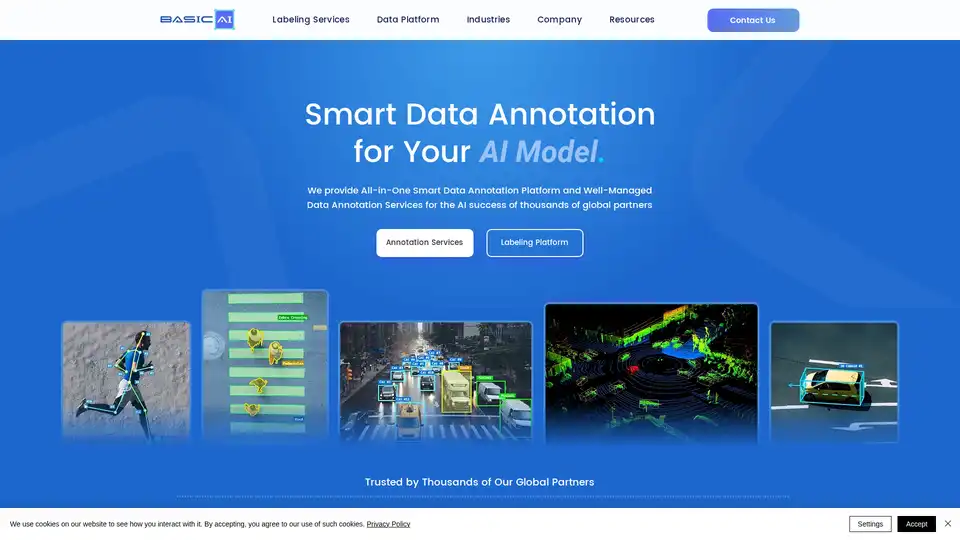
BasicAI
Overview of BasicAI
What is BasicAI?
BasicAI is a comprehensive AI data solutions provider specializing in data annotation services and a smart annotation platform. With over seven years of experience in the data labeling industry, BasicAI has built an infrastructure that supports the creation of high-quality training datasets for machine learning models. Trusted by thousands of global partners across industries like autonomous vehicles (AV), advanced driver-assistance systems (ADAS), and smart cities, BasicAI transforms raw data into precise ground truth datasets. This enables AI models to better understand their environments and perform reliably in real-world applications.
The company's mission is rooted in human-centered AI training data, turning innovative ideas into high-performance models that address practical challenges. BasicAI offers both managed labeling services and a deployable platform, ensuring flexibility for teams of all sizes. Whether you're developing AI for robotics, logistics, or agriculture, BasicAI's tools and expertise deliver the data foundation needed for success.
How Does BasicAI Work?
BasicAI operates through two main pillars: professional annotation services and a private deployment data platform. The services involve expert teams handling complex data labeling tasks, while the platform provides self-service tools for in-house annotation.
Annotation Services
BasicAI's labeling services cover a wide range of data types and tasks. Here's a breakdown of key offerings:
- 3D LiDAR Annotation: Essential for AV and ADAS, this involves labeling point clouds to identify objects in 3D space, supporting applications like obstacle detection in self-driving cars.
- Image Annotation: Includes bounding boxes, semantic segmentation, and object tracking for computer vision tasks in smart cities or manufacturing quality control.
- Audio/Video Tagging: For multimedia AI, this tags events, emotions, or actions in videos and audio, useful in sports analytics or surveillance.
- NLP Data Annotation: Focuses on natural language processing, such as entity recognition and sentiment analysis, powering chatbots and language models.
- RLHF & SFT Dataset Creation: Tailored for large language models, reinforcement learning from human feedback (RLHF) and supervised fine-tuning (SFT) datasets help align AI behaviors with human preferences.
These services emphasize quality assurance, with multi-level inspections achieving 99%+ accuracy. BasicAI avoids crowdsourcing, instead relying on over 160 specialized global teams with domain knowledge. This ensures context-aware annotations, reducing errors in niche scenarios like remote sensing for property tax assessments.
Pricing is competitive due to efficient tools and project management, making it accessible for various project scales. Clients can request free consultations to discuss needs, and the process starts with understanding project requirements, followed by customized workflows and delivery of annotated datasets.
Data Annotation Platform
For teams preferring control over their data, BasicAI's platform offers private deployment within your environment. Built on years of industry experience, it prioritizes security and performance for enterprise AI projects.
Key features include:
- Automated Annotation Tools: AI-assisted labeling for images, point clouds, and audio speeds up workflows while upholding accuracy. For instance, pre-labeling reduces manual effort by up to 50% in repetitive tasks.
- All Tasks Coverage: Supports everything from basic detection to advanced NLP and 3D segmentation, integrating seamlessly with ML pipelines.
- Scalable Workflow Management: Customizable projects with role-based access, real-time tracking, and performance analytics. Teams can assign tasks, monitor progress, and generate reports effortlessly.
- Smart Quality Check: Real-time feedback and batch QA rules detect inconsistencies early, flagging issues for human review without disrupting the flow.
The platform also features Xtreme1, the world's first open-source multi-sensory training data platform available on GitHub. This toolset enhances collaboration and is ideal for sensor fusion projects in automotive or robotics.
To get started, users can request a demo or download documentation. Deployment is straightforward, with support for on-premises or cloud setups, ensuring data privacy compliance.
Primary Use Cases and Applications
BasicAI shines in industries requiring precise AI training data. Here are some highlighted use cases:
- GIS & Remote Sensing: In property tax assessment, BasicAI's semantic segmentation annotations handle complex terrains, improving AI accuracy for mapping and valuation. A client testimonial notes: "We rely on BasicAI's precise and efficient labeling to enhance our operational efficiency and ensure the reliability of our AI models."
- Smart City: Bounding box annotations for traffic monitoring and urban planning, enabling AI to detect vehicles, pedestrians, and infrastructure in real-time video feeds.
- Automotive and AV/ADAS: 3D point cloud labeling for sensor fusion, critical for safe autonomous navigation.
- Agriculture and Logistics: Image and video tagging to optimize crop monitoring or warehouse automation.
- Manufacturing and Robotics: NLP and object detection for quality inspection and robotic arms programming.
These applications demonstrate BasicAI's versatility, from edge AI in drones to large-scale LLM fine-tuning. By providing datasets that "make AI truly understand its environment," BasicAI elevates model performance, reducing training time and costs.
Why Choose BasicAI?
In a crowded AI data market, BasicAI stands out for several reasons:
- Proven Track Record: Over 300,000 datasets built, serving diverse sectors with a focus on quality over quantity.
- Efficiency and Cost Savings: AI-powered tools and expert management lower labeling costs without compromising precision.
- Global Reach with Local Expertise: 160+ teams ensure culturally and contextually relevant annotations.
- Innovation Leadership: Open-source contributions like Xtreme1 and resources such as the free e-book on 3D LiDAR annotation provide added value.
Compared to generic platforms, BasicAI's enterprise-grade security, customizable workflows, and industry-specific tools offer superior scalability. It's not just about labeling—it's about building robust AI ecosystems.
Who is BasicAI For?
BasicAI targets AI developers, ML engineers, and data scientists in tech companies, startups, and research institutions. It's ideal for:
- Teams building computer vision or NLP models needing high-fidelity datasets.
- Enterprises in regulated industries like automotive or healthcare requiring secure, private deployments.
- Innovators in emerging fields like generative AI, where RLHF datasets are crucial for model alignment.
Whether you're a small team prototyping an app or a large organization scaling production AI, BasicAI adapts to your needs. Beginners can leverage services for quick starts, while experts benefit from the platform's advanced features.
How to Use BasicAI: Best Practices
Getting started is simple:
- Assess Your Needs: Identify data types (e.g., images, LiDAR) and annotation tasks via free consultation.
- Choose Your Path: Opt for managed services for hands-off expertise or deploy the platform for internal control.
- Integrate and Annotate: Use AI-assisted tools for initial labeling, then apply quality checks.
- Train and Iterate: Feed datasets into your ML pipeline, refining based on performance metrics.
For platform users, explore the documentation and GitHub for Xtreme1 to customize tools. Regular updates via the blog keep you informed on best practices, like optimizing workflows for 3D data.
Common challenges, such as handling imbalanced datasets or ensuring annotator consistency, are addressed through built-in QA and training protocols.
Practical Value and Testimonials
BasicAI's value lies in accelerating AI development timelines. By outsourcing or streamlining annotation, teams save weeks on data prep, focusing instead on model innovation. The competitive pricing model—tailored quotes based on project scope—makes professional data accessible without breaking budgets.
Client feedback reinforces this: In smart city projects, annotations have boosted detection accuracy by 20-30%, while in remote sensing, they've streamlined assessments in challenging environments.
For those curious about pricing, BasicAI offers transparent models: service-based per-task fees or platform subscriptions with usage tiers. FAQs cover integration ease, with most teams up and running in days.
In summary, BasicAI is the go-to solution for anyone serious about AI data quality. Its blend of services, platform, and community resources positions it as a key enabler in the AI revolution, helping turn raw potential into deployed intelligence.
Best Alternative Tools to "BasicAI"
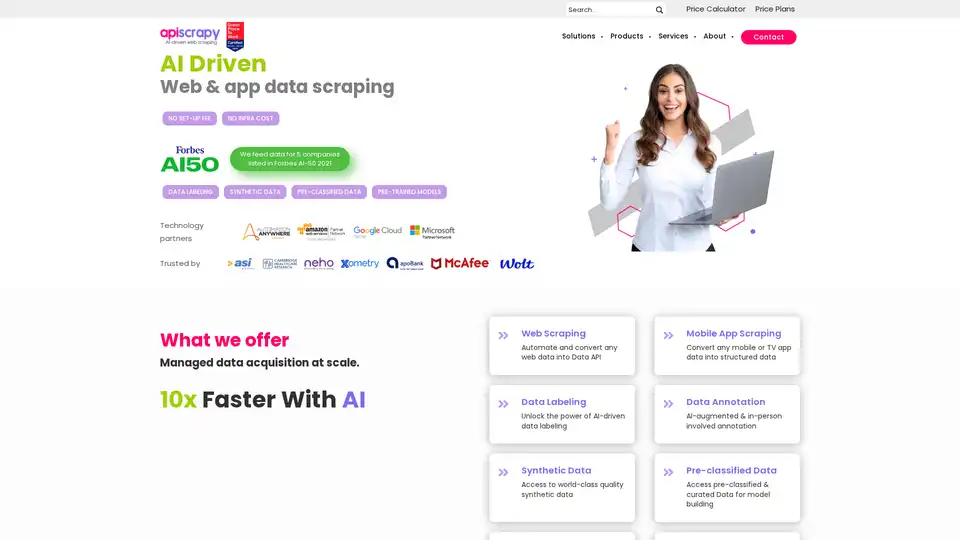
APISCRAPY is an AI-driven platform that offers web and app data scraping, data labeling, and workflow automation. It converts any website data into a ready-to-use data API and provides on-demand curated data for building AI products and services.
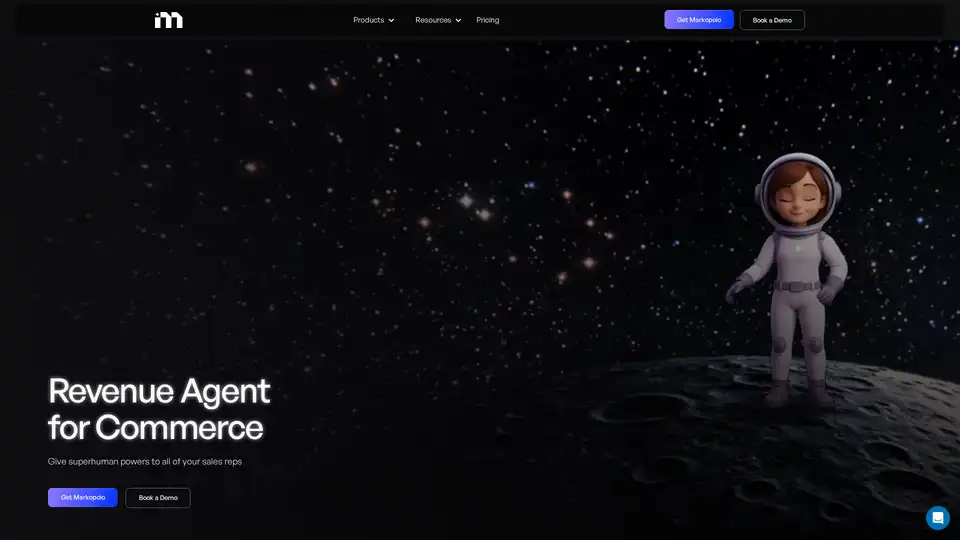
Markopolo is an AI-driven marketing platform that analyzes customer data to automate personalized outreach across multiple channels, including email, SMS, WhatsApp, and voice calls. Optimize ad spend, track attribution, and boost ROI.
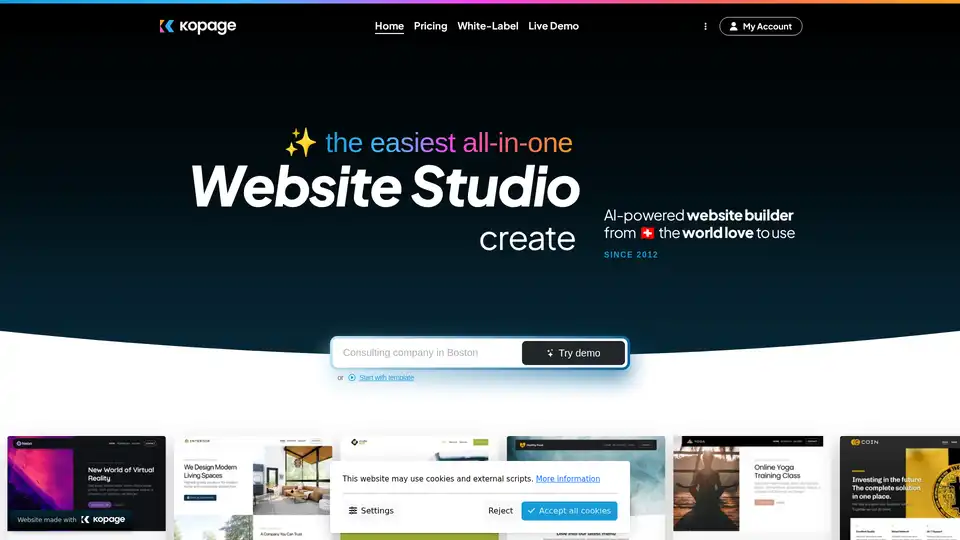
AI-Powered, white-label Website Builder. Create websites for your clients with AI, in 30 seconds or less!
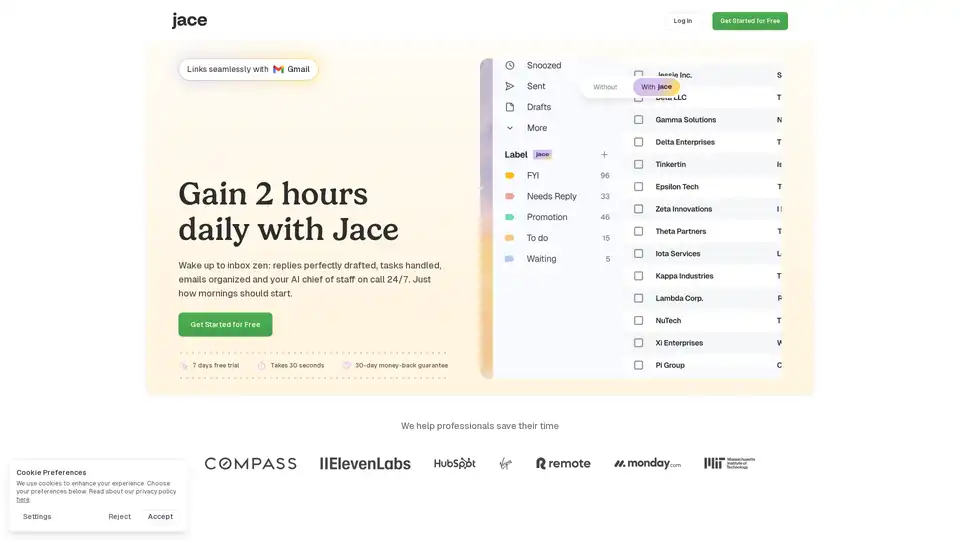
Jace AI is your intelligent 24/7 email assistant that drafts replies in your voice, organizes your inbox, schedules meetings, and automates tasks to reclaim hours of your day with seamless Gmail integration.
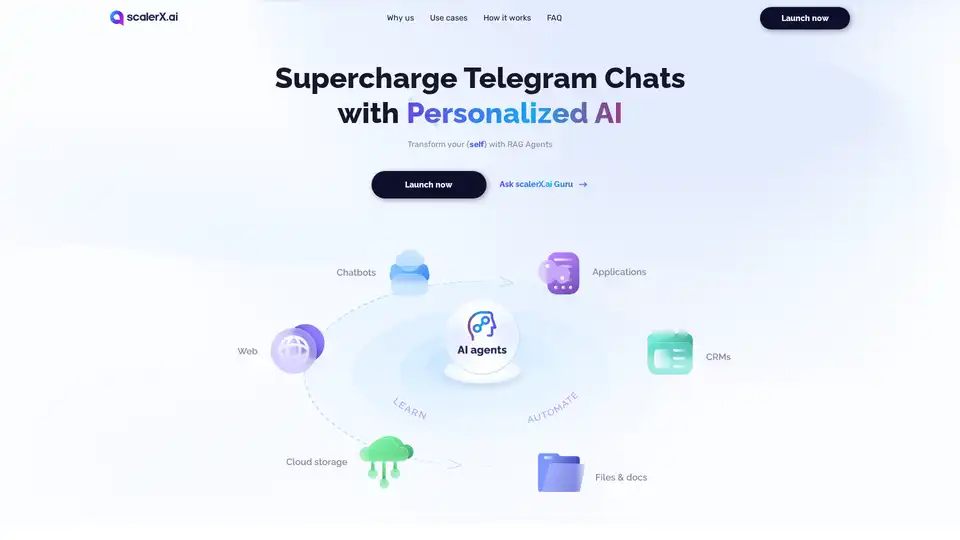
Personalized GenAI RAG agents trained with your data. Ideal for business owners, channel admins, customer service, sales, education and more.
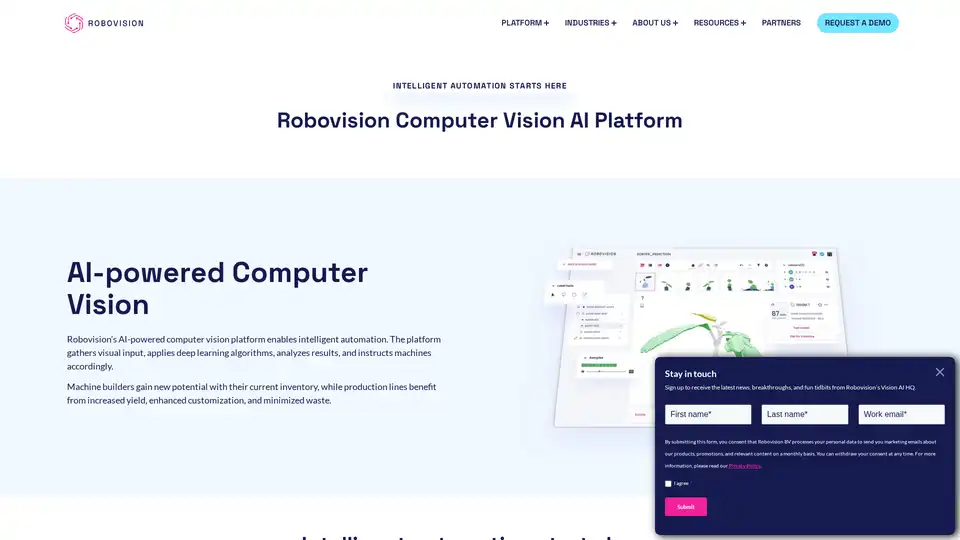
Discover Robovision's AI-powered computer vision platform for intelligent automation. It processes visual data with deep learning, enabling efficient model training and deployment for industries like manufacturing and agriculture.
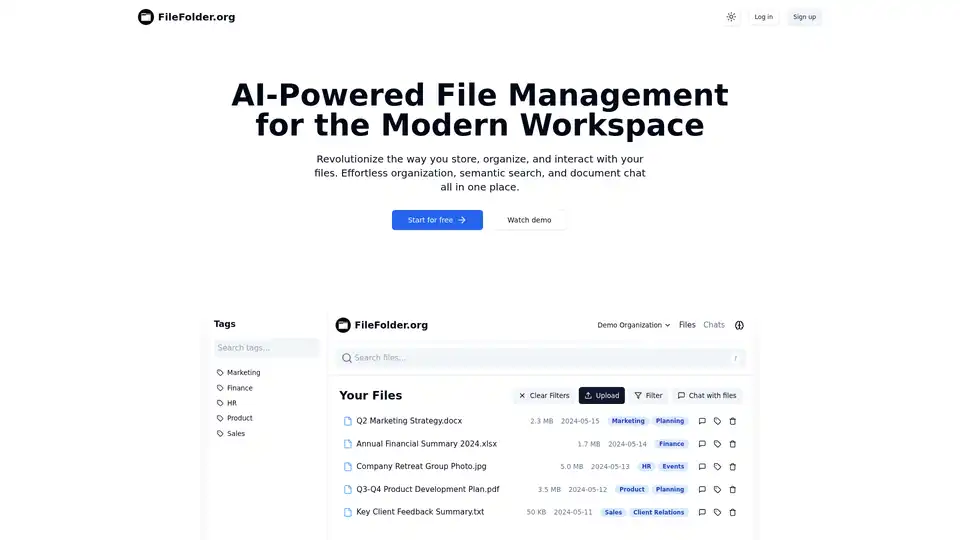
FileFolder.org is an AI-powered file management platform that automates organization, enables semantic search, and allows chatting with documents. Ideal for modern workspaces in marketing, finance, HR, product, and sales teams.
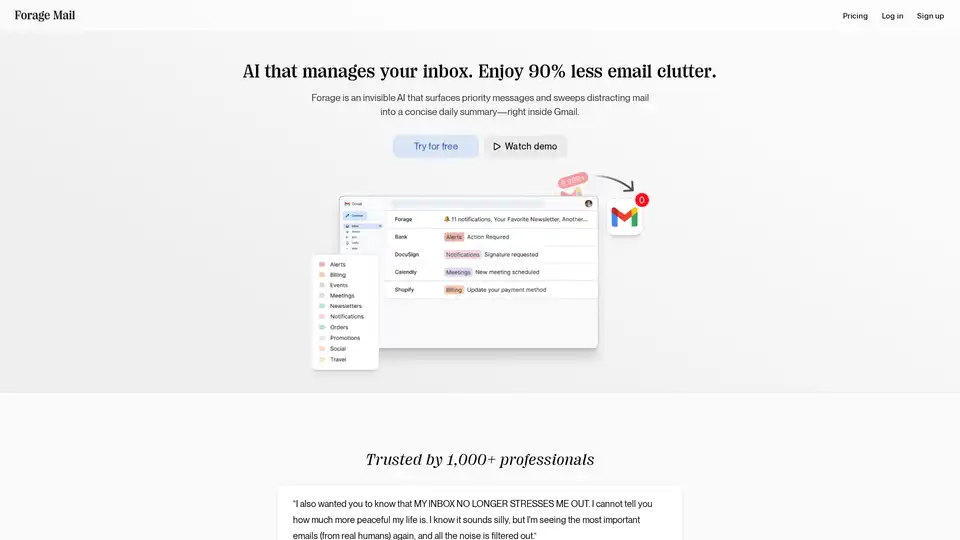
Forage Mail is an AI-powered Gmail add-on that filters your inbox, surfaces priority messages, and summarizes the rest, reducing email clutter by 90%.
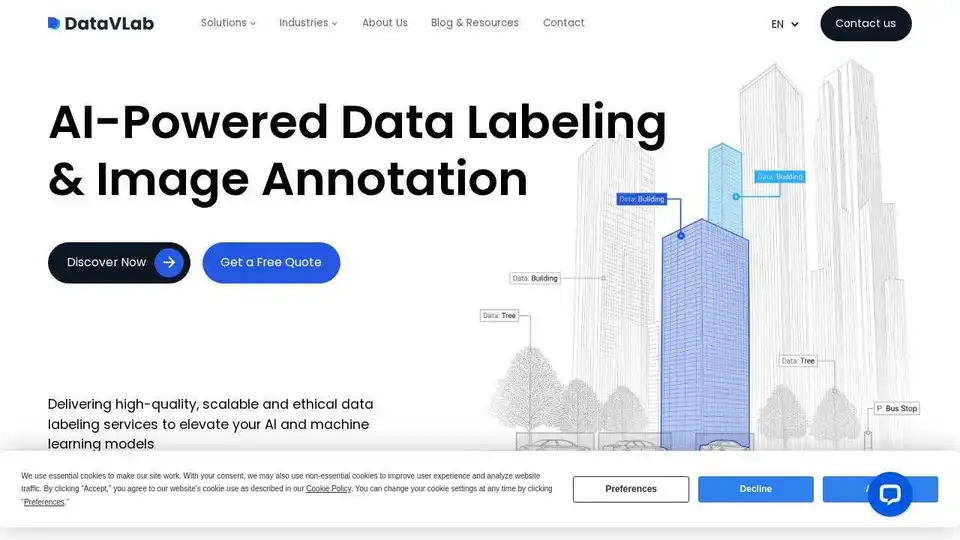
Power your AI models with precise image annotation and data labeling using DataVLab. High-quality, scalable services for healthcare, retail, and mobility.
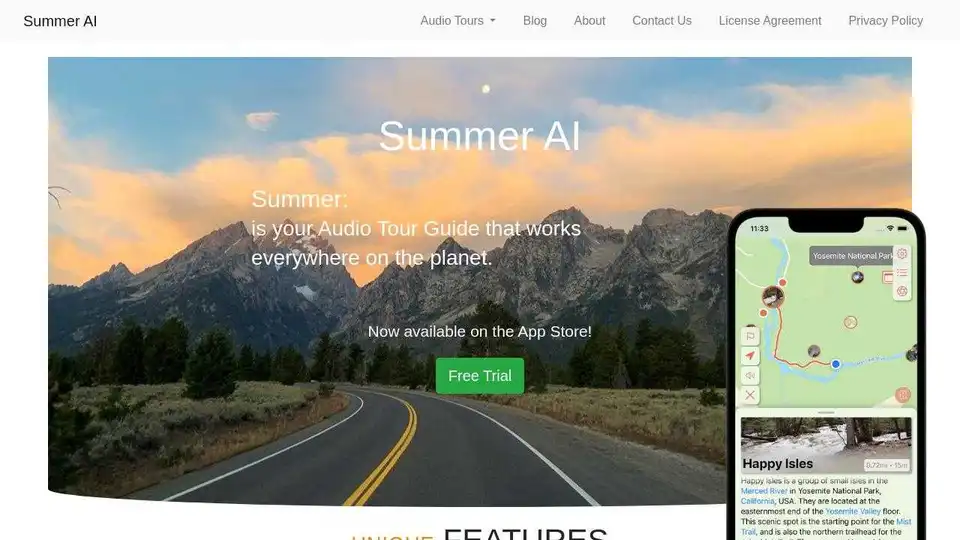
Summer AI is an AI-powered audio tour guide app for discovering nearby stories, points of interest, and local events. Available on the iOS App Store.
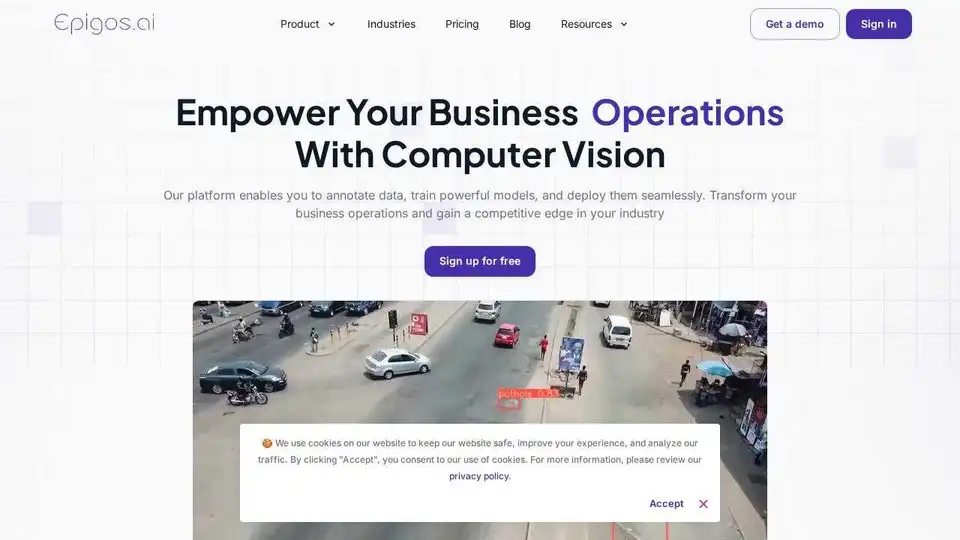
Epigos AI empowers businesses with a computer vision platform to annotate data, train models, and deploy them seamlessly. Automate processes and drive intelligent decision-making.
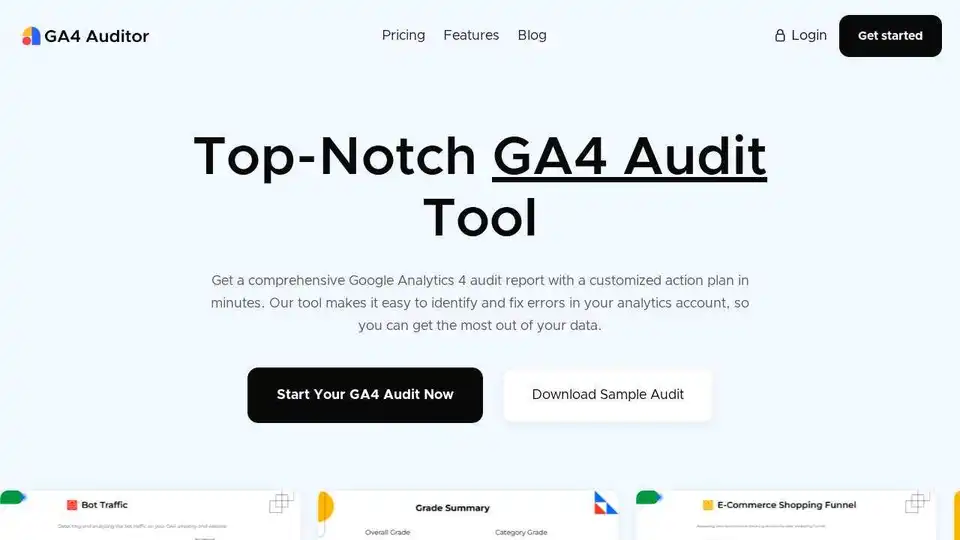
GA4 Auditor is an automated tool for comprehensive Google Analytics 4 audits. Get actionable insights in minutes to improve data accuracy and website performance.
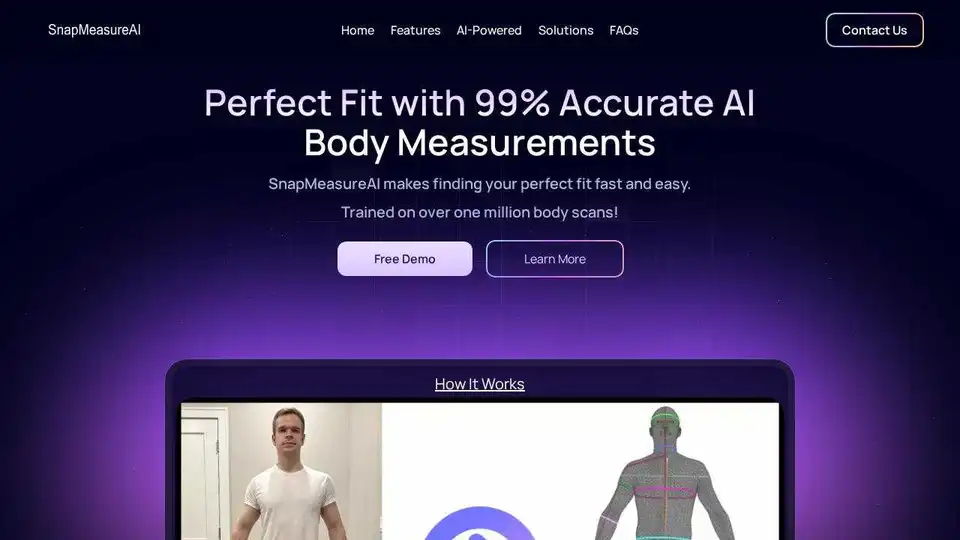
SnapMeasureAI: AI-powered solution for automated image annotation, precise 3D body measurements from photos, and video-based motion capture. Reduce clothing returns & annotation time.
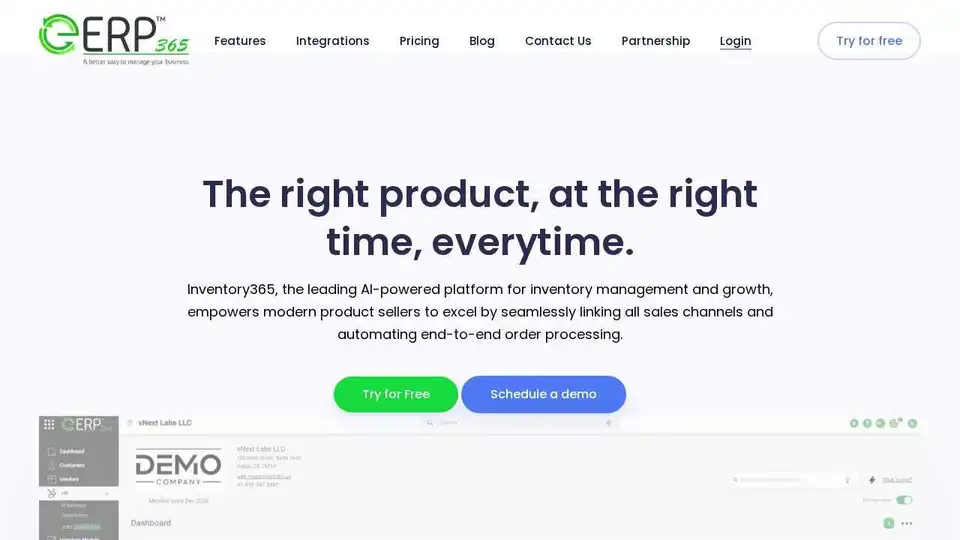
Inventory365 is an AI-powered inventory management platform for ecommerce, offering real-time tracking, order automation, and multichannel integration. Optimize your inventory & boost sales.
